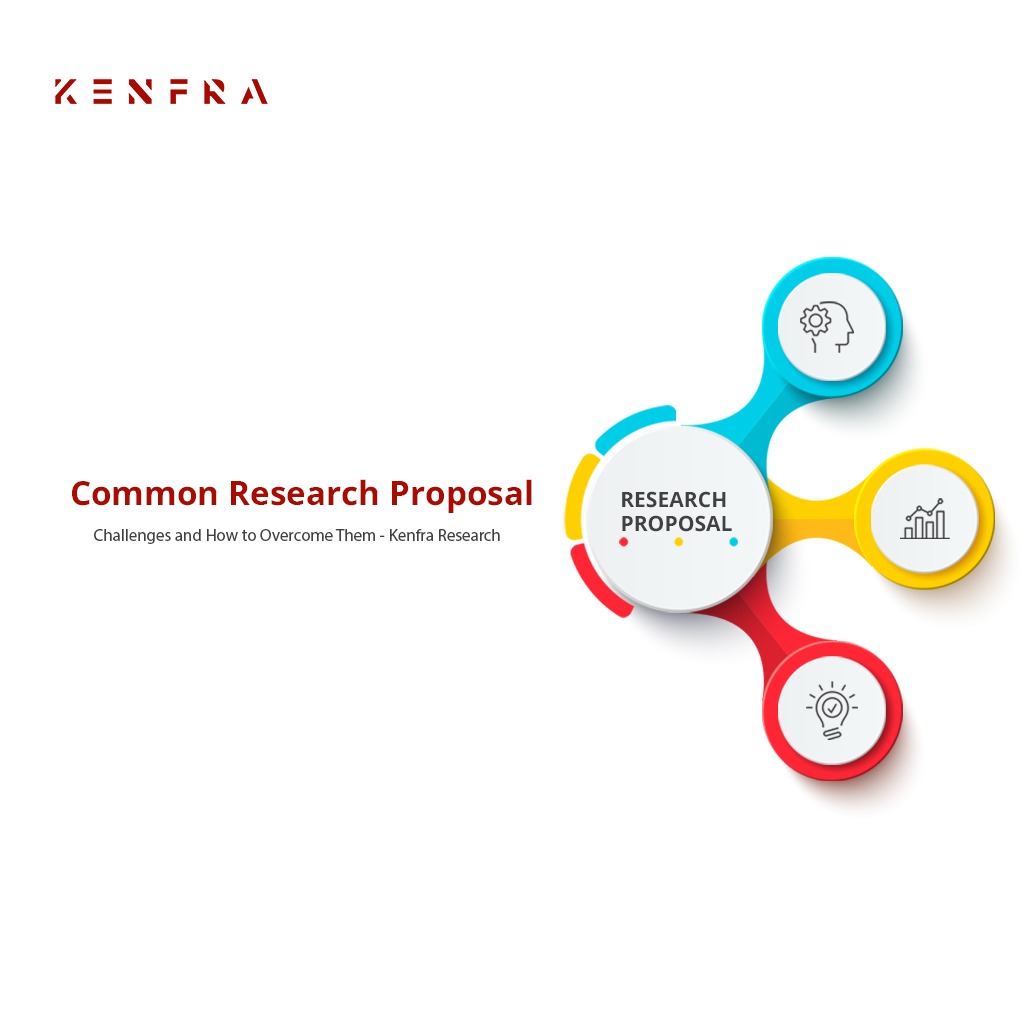Common Research Proposal Challenges and How to Overcome Them
Kenfra2025-10-28T16:42:18+05:30Crafting a compelling research proposal is a critical step in your academic journey. However, many scholars face common challenges that can derail their efforts. In this blog, we’ll explore key issues such as choosing the wrong topic, not having clear research questions, and not having a clear thesis statement. We’ll also provide practical solutions to help you navigate these obstacles effectively.
How Do I Choose the Right Topic for My Research Proposal?
Selecting an appropriate topic is the foundation of a successful research proposal. To choose the right topic:
- Identify your areas of interest and passion.
- Ensure the topic is relevant to your field of study.
- Consider the feasibility of conducting research on the chosen topic.
What Are the Common Mistakes in Selecting a Research Proposal Topic?
Avoid these pitfalls when selecting your topic:
- Choosing a topic that is too broad or too narrow.
- Selecting a topic with limited available resources or research.
- Focusing on a topic that lacks relevance or significance in your field.
How Can I Ensure My Research Question Is Clear and Focused?
A clear and focused research question is essential. Here’s how to refine your research question:
- Be specific and precise in your wording.
- Ensure the question aligns with your research objectives.
- Avoid ambiguity and ensure the question is researchable.
What Are the Best Practices for Formulating Clear Research Questions?
Formulate effective research questions by:
- Conducting preliminary research to understand the topic.
- Narrowing down your focus to address a specific problem.
- Using clear and concise language to avoid confusion.
Why Is It Important to Have a Clear Thesis Statement in a Research Proposal?
A clear thesis statement provides direction and focus for your research. It:
- Defines the scope and purpose of your study.
- Helps you stay on track during the research process.
- Communicates your main argument to the readers.
How Do I Develop a Strong and Clear Thesis Statement for My Research Proposal?
To craft a strong thesis statement:
- Clearly state your research problem and objectives.
- Make sure it is specific, concise, and arguable.
- Reflect the significance of your research in the statement.
What Are the Consequences of Choosing the Wrong Topic for a Research Proposal?
Choosing the wrong topic can lead to:
- Lack of interest and motivation in conducting the research.
- Difficulty in finding relevant literature and resources.
- Potential rejection of your research proposal by review committees.
How Can I Avoid Ambiguity in My Research Questions?
Prevent ambiguity by:
- Being clear and precise in your language.
- Avoiding vague terms and ensuring specificity.
- Reviewing and revising your question to eliminate confusion.
What Steps Can I Take to Refine My Research Question for Clarity?
Refine your research question by:
- Seeking feedback from peers or mentors.
- Revisiting your preliminary research and notes.
- Ensuring the question addresses a specific aspect of your topic.
How Does a Well-Defined Thesis Statement Benefit a Research Proposal?
A well-defined thesis statement:
- Guides your research and writing process.
- Helps you organize your thoughts and structure your proposal.
- Clearly communicates the purpose and significance of your study.
What Strategies Can Help in Narrowing Down a Research Topic Effectively?
Narrow down your research topic by:
- Identifying sub-topics within your area of interest.
- Focusing on a specific aspect or issue within the broader topic.
- Considering the availability of resources and literature.
How Can I Align My Research Question With My Research Objectives?
Ensure alignment by:
- Clearly defining your research objectives first.
- Formulating questions that directly address these objectives.
- Regularly reviewing and adjusting your questions as needed.
What Role Does a Thesis Statement Play in the Success of a Research Proposal?
The thesis statement:
- Provides a clear direction for your research.
- Helps reviewers understand the purpose and scope of your study.
- Establishes the foundation for your argument and analysis.
How Can I Identify If My Chosen Topic Is Too Broad or Too Narrow?
Determine the scope by:
- Conducting preliminary research to gauge the breadth of available literature.
- Seeking feedback from academic advisors or peers.
- Ensuring the topic can be thoroughly explored within the constraints of your study.
How Important Is It to Have a Clear Focus in a Research Proposal?
Having a clear focus is crucial because:
- It ensures your research is manageable and targeted.
- Helps you stay on track and avoid unnecessary tangents.
- Increases the likelihood of producing meaningful and significant results.
What Are the Signs That My Research Question Is Not Clear Enough?
Signs include:
- Difficulty in finding relevant literature or resources.
- Ambiguous or vague language in the question.
- Lack of alignment with your research objectives.
How Can I Revise My Thesis Statement to Make It Clearer?
Revise your thesis statement by:
- Simplifying complex language and ideas.
- Ensuring specificity and focus.
- Aligning it closely with your research objectives and questions.
What Should I Consider When Selecting a Topic for My Research Proposal?
Considerations include:
- Relevance to your field of study and personal interests.
- Availability of resources and literature.
- Feasibility and scope of conducting the research.
How Can I Ensure My Research Proposal Addresses Significant and Relevant Issues?
Ensure relevance by:
- Identifying current gaps in the literature.
- Focusing on issues with significant academic or societal impact.
- Consulting with experts and advisors in your field.
Conclusion
Crafting a successful research proposal involves careful consideration of your topic, research questions, and thesis statement. By addressing these common challenges and following the strategies outlined in this guide, you can enhance the clarity and focus of your proposal, increasing its chances of approval and success.








Leave a Reply